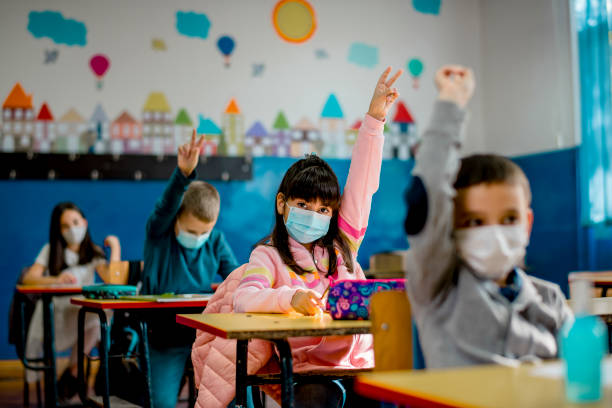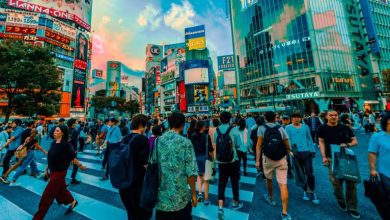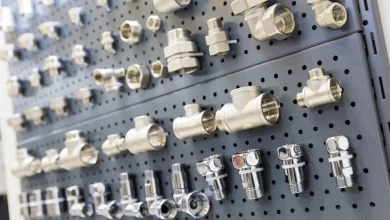Transforming Lives: The Evolving Landscape of Education in Karachi
Education in Karachi: A Story of Progress and Potential

Karachi, Pakistan’s bustling economic hub and the largest city, is a place of incredible diversity and contrasts. This dynamic metropolis is not just the financial heart of the country; it’s also a melting pot of cultures, ideas, and, perhaps most importantly, opportunities for education. Education in Karachi has evolved significantly over the years, adapting to the city’s fast-paced growth and meeting the needs of its diverse population.
The Educational Landscape
In recent years, the landscape of education in Karachi has undergone a transformation. The city, home to millions of people, is known for its bustling streets and towering skyscrapers. Still, beneath the surface, a rich tapestry of educational institutions and initiatives is shaping the future of countless students.
Primary and Secondary Education
The foundation of any education system lies in its primary and secondary schools. Karachi boasts a vast network of both public and private schools that cater to a diverse student body. These schools are spread across various socio-economic strata, providing access to quality education for students from different backgrounds.
One challenge in primary and secondary education is ensuring that all students receive a standard education. This is where the government plays a pivotal role in regulating and improving the quality of public schools. Karachi’s education authorities have been working diligently to enhance the quality of education in government-run schools, aiming to bridge the educational gap between public and private institutions.
The inclusion of modern teaching methods and technology in the classroom has also become a significant focus. Many schools in Karachi are now equipped with smart boards and digital resources, which enrich the learning experience and prepare students for the digital age.
Higher Education Opportunities
Karachi is renowned for its numerous universities and colleges, offering a wide array of programs. These higher education institutions are hubs for academic excellence and research, attracting students from all over Pakistan and even abroad. From renowned institutions like the University of Karachi and the Institute of Business Administration to specialized medical and engineering universities, Karachi’s higher education scene is thriving.
The accessibility of higher education is also improving. Scholarships, grants, and financial aid programs have made it more feasible for students from diverse socio-economic backgrounds to pursue their dreams of higher education. This has not only broadened horizons for individuals but has also contributed to the city’s intellectual and economic growth.
Challenges and Opportunities
While the educational landscape in Karachi presents many opportunities, it also faces several challenges. One pressing issue is the need for standardization and quality control in the private school sector. Karachi has a large number of private schools, each with its own curriculum and teaching methods. Ensuring consistent quality and educational standards across these institutions is an ongoing challenge.
Furthermore, the city’s ever-increasing population demands innovative solutions for accommodating the growing number of students. Karachi’s urban sprawl has led to overcrowded classrooms and increased pressure on the existing education infrastructure. The government and educational institutions need to address this issue with effective urban planning and investment in educational infrastructure.
Inclusivity and Diversity
One of the most notable aspects of education in Karachi is its diversity. The city is home to people from various cultural, ethnic, and socio-economic backgrounds. This diversity has enriched the educational experience, fostering tolerance and a better understanding of different cultures.
Inclusivity and diversity are not just buzzwords; they are integral to the ethos of Karachi’s educational institutions. Many schools and universities actively promote diversity and inclusion, organizing cultural events, workshops, and programs that celebrate the city’s multicultural fabric.
The Role of Technology
Technology has played a significant role in shaping education in Karachi. From digital learning resources to online education platforms, technology has opened up new horizons for students. The COVID-19 pandemic further accelerated the adoption of online learning, with many educational institutions transitioning to remote teaching and learning.
While online education offers flexibility and accessibility, it also highlights the digital divide, as not all students have equal access to the necessary technology and internet connectivity. Bridging this gap is essential to ensure that every student has an equal opportunity to access quality education.
Technical and Vocational Training
Skill Development
In a rapidly evolving job market, vocational training and skill development have become paramount. Karachi’s vocational institutions equip individuals with the practical skills needed for various industries.
Bridging the Gender Gap
Empowering Women Through Education
Karachi is at the forefront of bridging the gender gap in education. Various initiatives and organizations work tirelessly to ensure that girls have equal access to quality education.
Higher Education: Karachi’s Universities
World-Renowned Institutions
Karachi is home to some of Pakistan’s most prestigious universities, attracting students from across the country and even international scholars. These institutions offer a wide range of programs, catering to diverse fields of study.
Research and Innovation
Karachi’s universities are not just centers of learning but also hubs of innovation and research. They contribute to groundbreaking discoveries and foster a culture of intellectual exploration.
The Role of Government
Promoting Education
The government of Sindh, of which Karachi is the provincial capital, is committed to enhancing the quality of education in the city. Several educational reforms and policies are in place to improve the educational landscape.
The Impact on Society
A Knowledgeable Society
Education in Karachi isn’t limited to classroom learning; it extends to the society at large. A well-educated society is more likely to make informed decisions and contribute positively to the community.
Community Engagement and Social Initiatives
Karachi’s education sector is not just the responsibility of institutions and authorities; it’s a community effort. Non-governmental organizations, social initiatives, and community-driven projects play a crucial role in addressing educational challenges. They focus on providing education to underprivileged communities, offering scholarships, and improving the overall quality of education in the city.
Future Prospects
The future of education in Karachi is promising. As the city continues to grow and evolve, educational institutions are adapting to meet the changing needs of students. They are working on enhancing curriculum standards, embracing technology, and creating a more inclusive and diverse learning environment.
The government, in collaboration with private entities, is investing in infrastructure development to accommodate the increasing student population. The goal is to ensure that every child in Karachi has access to quality education, regardless of their background.
In conclusion, education in Karachi is a vibrant and evolving landscape. With the collective efforts of educational institutions, the government, and the community, Karachi is moving towards a more inclusive, diverse, and technologically advanced education system. The city’s educational journey reflects its spirit of resilience and progress, offering hope and opportunities for the current and future generations.
As we look ahead, it’s clear that education in Karachi is not just about imparting knowledge; it’s about transforming lives, nurturing talent, and building a brighter future for all its residents.






